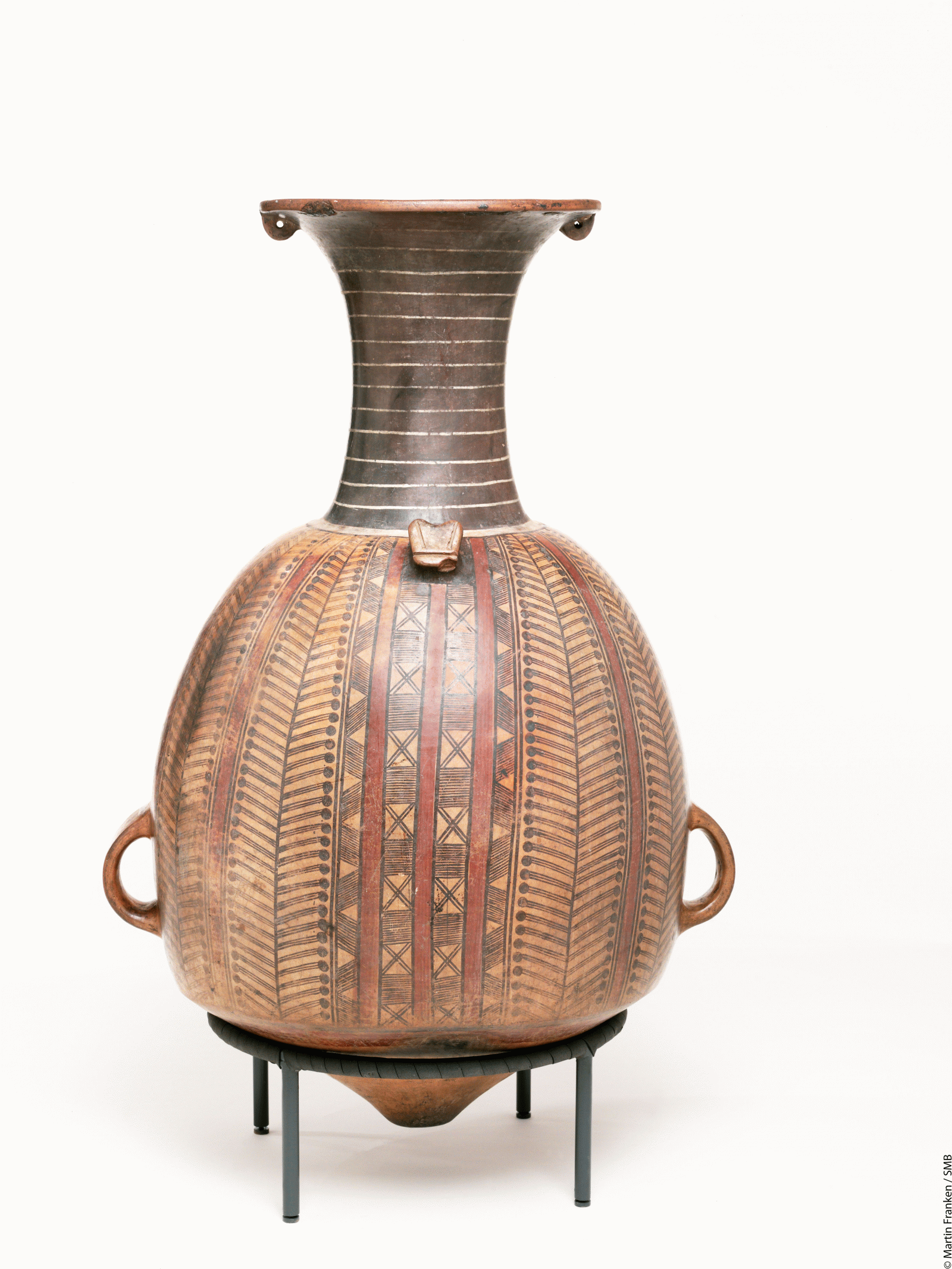4A Lab Seminar
Bat-ami Artzi: Zooming in and out on Maize and Landscape Representation in Inca Art

Inca ceramic jar, fifteenth-sixteenth century, unknown artist. V A 7891, Ethnological Museum of Berlin, high: 47 cm (photography by Martin Franken).
The maize plant was a key product within the highly complex Inca imperial system. The plant fulfilled significant roles on many levels of the Inca society and played a crucial part in state ceremonies. For example, during a special ritual, the Inca himself inaugurated the maize sowing season. In many of the reciprocal relationships established between humans and political entities, or between humans and divinities, maize beer (called chicha in Spanish or aqha in Quechua) was a key ingredient. Furthermore, the plant modified the landscape of the Empire: terraces and irrigation systems were constructed in order to expend the territory for maize cultivation.
The agency of the maize plant among Inca and Andean societies has been studied by a number of scholars using anthropological, ethno-historical and archaeological data and methods. However, its prominent social and economical position in Inca imperial art was neither explored nor integrated into those studies. It seems odd that such an important plant would not be depicted by the Incas. The presentation intents to fill this gap by identifying maize plants on Inca ceramics, therefore adding a significant amount of data to the larger study of the Inca Empire.
The decoration of the Inca ceramic style is highly geometrical and abstract; however, these geometrical motifs can be read in relation to the Inca reality. The presentation suggests possible readings of some of these motifs, all which are related to the cyclicality of the cultivation and storage of the maize. By reading these motifs the Inca art strategies for the representation of depth, perspective and multiple viewpoints, are revealed.
Current 4A_Lab Postdoctoral Fellow Bat-ami Artzi is an Art Historian, Archaeologist and Curator interested in the art and material culture of ancient and colonial Andean indigenous societies. She received her Ph.D. from the Hebrew University of Jerusalem. Her doctoral thesis Beyond the Image: Femininity and Other Gender Expressions in the Ancient Art of the South-Central Andes (800 B.C-1532 A.D) reconstructs many aspects of the ancient Andean gender structures' and their expressions in art, society, religion, and ideology. Artzi's research centers on the material representation of ideas and notions through forms, technologies, materials, and iconographies. Her studies were funded by the Prussian Cultural Heritage Foundation (2018, 2011), the Minerva Foundation (2015, 2011), and by the Hebrew University of Jerusalem (2010-2014, 2019). For one of her publications she has been awarded the Polonsky Prize for Creativity and Originality in the Humanistic Disciplines (2017).
30 giugno 2020, ore 15:00
Online 4A_Lab Seminar
Die Veranstaltung findet online statt.
Interne Veranstaltung
Avviso
Questo evento viene documentato fotograficamente e/o attraverso riprese video. Qualora non dovesse essere d’accordo con l’utilizzo di immagini in cui potrebbe essere riconoscibile, da parte del Kunsthistorisches Institut in Florenz a scopo di documentazione degli eventi e di pubbliche relazioni (p.e. social media) la preghiamo gentilmente di comunicarcelo.


